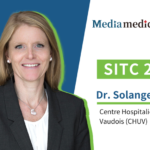
The treatment of resectable non-small cell lung cancer (NSCLC) continues to evolve, with debates focusing on whether patients should receive adjuvant immunotherapy following successful neoadjuvant immunotherapy and surgery. This topic was a highlight of discussions at the 2024 World Conference on Lung Cancer (WCLC) hosted by the International Association for the Study of Lung Cancer (IASLC). Dr. Mark G. Kris from Memorial Sloan Kettering Cancer Center shared his insights on this matter.Unprecedented Advances in Perioperative Immunotherapy
Global efforts have launched nine randomized clinical trials evaluating perioperative immunotherapy. Most trials compare chemotherapy alone to a combination of chemotherapy with immune checkpoint inhibitors (ICIs), while one trial examined chemotherapy versus a combination of ipilimumab and nivolumab.
All perioperative immunotherapy trials consistently demonstrated significant advantages for ICI-containing regimens in terms of pathologic complete response (pCR), with additional improvements in event-free survival (EFS) or disease-free survival (DFS). Trials reporting overall survival (OS) also indicated OS benefits. The consistent results across trials are unprecedented.
Biologically, ICIs appear to be more effective when tumors are intact, as the immune response benefits from the tumor microenvironment, including lymph nodes, primary tumors, and any connections between them. However, this concept remains theoretical rather than firmly established in clinical practice.
A Critical Question: Postoperative Adjuvant Immunotherapy?
A significant question remains: Should patients who received neoadjuvant immunotherapy combined with chemotherapy continue with ICIs postoperatively? At WCLC 2024, Professor Patrick Forde from Ireland presented patient-level data analysis comparing perioperative immunotherapy and neoadjuvant-only immunotherapy.
Key studies compared:
- CheckMate 816 (neoadjuvant nivolumab + chemotherapy).
- CheckMate 77T (neoadjuvant nivolumab + chemotherapy followed by adjuvant nivolumab).
Findings:
- When analyzing from the date of surgery, perioperative immunotherapy showed slightly improved outcomes.
- However, when analyzing from the date of randomization, the benefit trend remained but was not statistically significant.
Professor Forde emphasized that perioperative trials only include patients who successfully underwent surgery, while neoadjuvant trials account for all patients who started treatment. This difference likely influences the interpretation of survival outcomes.
Defining the Threshold for Adjuvant Immunotherapy
Data from pembrolizumab trials suggest that the critical threshold for neoadjuvant benefit may not be a pathologic major response (MPR, ≤10% residual tumor cells). Instead, patients with up to 60% residual tumor cells may still derive benefit. This threshold could guide decisions on which patients need adjuvant immunotherapy.
The absence of randomized trials directly addressing this question makes definitive conclusions challenging. Current evidence strongly supports neoadjuvant chemotherapy combined with ICIs as a standard for Stage II and III NSCLC patients.
Consensus and Challenges
At the conference, several expert opinions emerged (though not supported by definitive data):
- Patients achieving MPR (≤10% residual tumor cells): Most physicians would not recommend adjuvant therapy.
- Patients with significant disease progression (≥60% residual tumor cells): These patients likely require alternative postoperative therapies as current treatments provide limited benefit.
- Patients between these thresholds (10%–60% residual tumor cells): This intermediate group presents a significant challenge. For patients with residual mediastinal disease, some experts favor postoperative radiotherapy over additional treatments.
For patients with extensive residual disease, the search for alternative therapies remains a key recommendation, although no research data currently support this approach.
Increasing Support for Neoadjuvant Immunotherapy
There is growing evidence and consensus favoring neoadjuvant immunotherapy as the preferred approach for resectable NSCLC patients without actionable driver mutations. Immune checkpoint inhibitors, particularly in combination with chemotherapy, represent a viable and increasingly standard method for managing these patients.
Source:
- Perioperative Therapy: The New Standard in Lung Cancer Care – Medscape, October 30, 2024.


